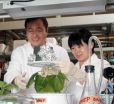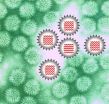(Press-News.org) The whole 'infertility journey' is an emotional rollercoaster and whilst IVF treatment might be successful for some, not knowing if you will be in the 25 per cent who become pregnant demands some serious coping skills. After reviewing research that explored which psychosocial factors are associated with the emotional adjustment of IVF patients, researchers have highlighted which key psychosocial factors could help identify patients at high risk of stress.
The aim of the study, led by PhD student, Helen Rockliff, from the University of Bristol's School of Clinical Sciences, was to find out what types of coping strategies, social circumstances and personality traits - called psychosocial factors - help people through IVF treatment, and which types are linked to especially high stress levels, and can lead to depression and anxiety disorders.
The researchers looked at various databases to find out what research has been carried out on this area to date. They found 23 studies had explored how at least one psychosocial factor was related to at least one psychological health outcome, such as: how does using social support as a way of coping with emotional distress during IVF treatment affect a woman's chances of getting depression after discovering it didn't work.
Collectively the results of these 23 studies showed that there are certain factors that predict worse emotional/psychological outcomes during and after IVF treatment, effects like anxiety, depression and high distress. One-third of the psychosocial factors explored were found to be significantly related to emotional adjustment outcome measures.
Neuroticism and the use of escapist/disengagment coping strategies were positively associated with distress by multiple studies. Social support was negatively associated with distress by several studies; the review found that several different measures of social support (the tendency to use a partner, friends and/or family when experiencing difficulties and distress), were associated with far better emotional outcomes, both for the women who got pregnant and those who didn't.
A number of other psychosocial variables appear to be associated with distress, including self-criticism, dependency, situation appraisals and attachment style, but these have only been explored by one or two studies at most. Only a small number of research studies have used positive emotional outcome measures, well-being, positive affect, happiness or life satisfaction, to quantify emotional adjustment, but 22 used a negative emotional outcome measure.
Helen Rockliff said: "In general, people who are socially connected and who use their social network for support during difficult times are happier and healthier, but it is interesting that this is the case for IVF patients too, because as many patients reveal, usually well after going through it all, infertility and its treatment are incredibly personal and many couples don't particularly want to tell people about it.
"It is often the case patients tend to have friends of similar ages, so IVF treatment for one couple can happen around the same time as their friends are discovering the joys of parenthood. All this often adds up to couples feeling socially isolated just when the research tells us social support is needed."
However, there is evidence that the emotional and health benefits of social support might be taking place partly because of the positive emotions humans experience when they have enjoyable or supportive interactions with people. During the last decade scientists have started testing the effects of imaging these social interactions, with techniques such as loving kindness meditation, and compassion focused imagery.
Helen Rockliff added: "Mindfulness, which is another emerging psychological training tool, is often a component of these interventions too. It appears that with practice the average person can learn to generate these positive emotions quite well using only their mind. Better still, it seems that in learning to do this people also get better at tolerating, and so engaging with their more difficult emotions – meaning less need for disengagement and escapism to cope with them."
The researchers suggest that this kind of mind training could be a good way to counteract the loss of social support IVF patients often experience, and at the same time build psychological resources that allow people to face difficulties rather than disengaging from them.
INFORMATION:
Paper: A systematic review of psychosocial factors associated with emotional adjustment in in vitro fertilization patients, Helen E. Rockliff, Stafford L. Lightman, Emily Rhidian,
Heather Buchanan, Uma Gordon, and Kavita Vedhara, Human Reproduction Update, 27 March 2014.
What psychosocial factors can help IVF patients?
2014-03-28
ELSE PRESS RELEASES FROM THIS DATE:
Public smoking bans associated with reduction in premature births and childhood asthma
2014-03-28
Boston, MA – In the first comprehensive study to look at how anti-smoking laws are affecting the health of children, researchers from University of Edinburgh collaborated with researchers from Maastricht University, Hasselt University, Harvard Medical School and Brigham and Women's Hospital, to conduct a systematic review and meta-analysis examining the effect of smoke-free legislation on child health. They found that the introduction of new laws that ban smoking in public places in North America and Europe has been followed by a decrease in rates of premature births and ...
Using tobacco to thwart infectious disease?
2014-03-27
An international research group led by Arizona State University professor Qiang "Shawn" Chen has developed a new generation of potentially safer and more cost-effective therapeutics against West Nile virus, and other pathogens.
The therapeutics, known as monoclonal antibodies (MAbs) and their derivatives, were shown to neutralize and protect mice against a lethal dose challenge of West Nile virus---even as late as 4 days after the initial infection.
"The overarching goal of our research is to create an innovative, yet sustainable and accessible, low cost solution to ...
How rotavirus infection accelerates autoimmune diabetes in a mouse model
2014-03-27
A combination of genetic predisposition and environmental factors is believed to cause autoimmune (type 1) diabetes. A study published on March 27th in PLOS Pathogens gets at the mechanisms by which rotavirus infection contributes to autoimmune diabetes in a mouse model of the disease.
NOD (for non-obese diabetic) mice are prone to develop diabetes, and infection with rotavirus accelerates onset of the disease. Barbara Coulson and colleagues, from The University of Melbourne, Australia, tested the hypothesis that the virus does this by inducing "bystander activation". ...
Genetic variation linked to heart disease risk through RNA machinery
2014-03-27
Researchers have pinpointed a new mechanism of how natural variation in our DNA alters an individual's risk for developing heart disease by interfering with the ability of a developmental gene to interact with a specialized type of RNA. This work expands on previous work identifying the "hidden" causes of complex disease risk, with the goal of unlocking new pathways and potential drug targets for cardiovascular disease.
This latest study led by Thomas Quertermous, MD at Stanford University and Georg Sczakiel, PhD at the University of Lübeck (Germany) was a joint effort ...
Ancient African cattle first domesticated in Middle East
2014-03-27
Geneticists and anthropologists previously suspected that ancient Africans domesticated cattle native to the African continent nearly 10,000 years ago. Now, a team of University of Missouri researchers has completed the genetic history of 134 cattle breeds from around the world. In the process of completing this history, they found that ancient domesticated African cattle originated in the "Fertile Crescent," a region that covered modern day Iraq, Jordan, Syria and Israel.
In their study published in PLOS Genetics, Prof. Decker (University of Missouri) and a team of international ...
Autoimmune drug may help prevent kidney disease caused by diabetes
2014-03-27
Washington, DC (March 27, 2014) — A drug currently used to treat autoimmune disease may also help prevent the kidney-damaging effects of diabetes, according to a study appearing in an upcoming issue of the Journal of the American Society of Nephrology (JASN). The findings suggest that clinical trials should be designed to test the drug in diabetic patients.
Kidney disease is one of the most serious complications of diabetes. Diabetics who develop kidney disease, or diabetic nephropathy, due to high blood glucose levels may eventually require dialysis or a kidney transplant. ...
Major depression linked with nearly twice the risk of kidney failure in diabetics
2014-03-27
Washington, DC (March 27, 2014) — Major depression may increase diabetes patients' risk of developing kidney failure, according to a study appearing in an upcoming issue of the Clinical Journal of the American Society of Nephrology (CJASN). Additional studies are needed to determine whether treatment for depression can improve kidney health in patients with diabetes.
Individuals with diabetes have a high prevalence of depressive symptoms, which has previously been linked with negative health outcomes such as cardiovascular disease and premature death. Little is known ...
Gulf War illness not in veterans' heads, but in their mitochondria
2014-03-27
Researchers at the UC San Diego School of Medicine have demonstrated for the first time that veterans of the 1990-91 Persian Gulf War who suffer from "Gulf War illness" have impaired function of mitochondria – the energy powerhouses of cells.
The findings, published in the March 27, 2014 issue of PLOS ONE, could help lead to new treatments benefitting affected individuals – and to new ways of protecting servicepersons (and civilians) from similar problems in the future, said principal investigator Beatrice A. Golomb MD, PhD, professor of medicine.
Golomb, with associate ...
Stroke patients should receive customized palliative care
2014-03-27
People recovering from a stroke should have a well-coordinated medical team to personalize care, optimize quality of life and minimize suffering, according to a scientific statement published in the American Heart Association journal Stroke.
The statement is the first in the United States to outline fundamental palliative care for stroke survivors. Palliative care is patient- and family-centered care that improves life by anticipating, preventing and treating suffering.
"The majority of stroke patients need access to some form of palliative medicine," said Robert Holloway, ...
Consistent blood pressure control may cut rate of second stroke in half
2014-03-27
Stroke survivors who consistently control their blood pressure may reduce the likelihood of a second stroke by more than half, according to new research in the American Heart Association journal Stroke.
For the study, researchers analyzed the results from the Vitamin Intervention for Stroke Prevention (VISP) trial, which enrolled 3,680 ischemic stroke patients ages 35 and older in 1996-2003. Ischemic strokes are caused by a clot or other blockage in a blood vessel supplying the brain. Participants had been tested for several risk factors, including blood pressure levels ...

